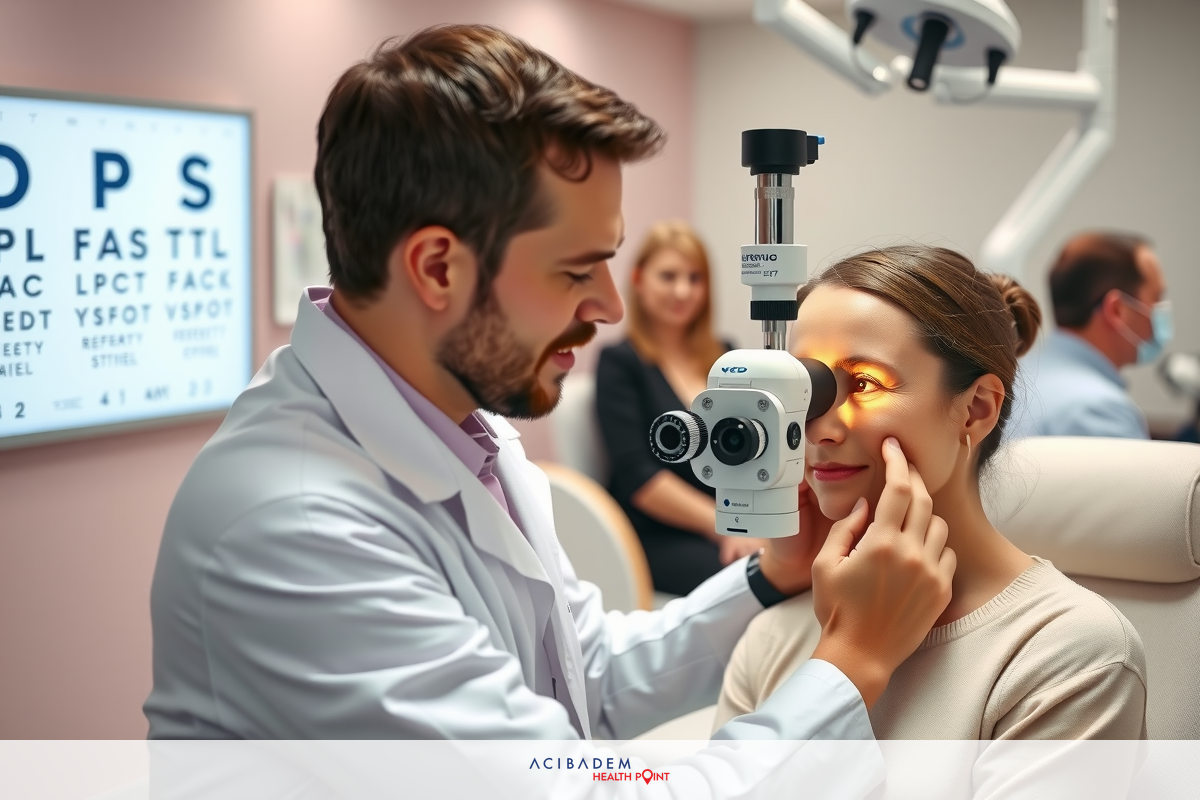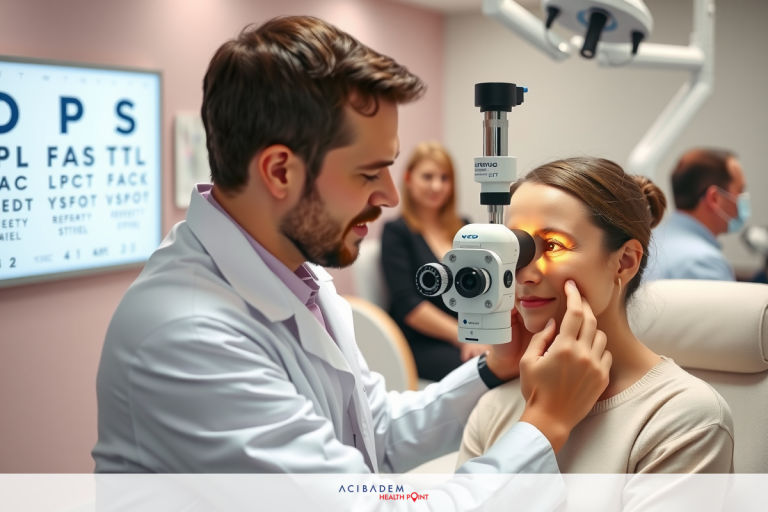What Is Refractive Laser Eye Surgery?
What Is Refractive Laser Eye Surgery? In the realm of vision correction, refractive laser eye surgery has emerged as a powerful tool. It’s not magic; rather, it utilizes precise technology and techniques to reshape the cornea—the clear front part of your eye—thus improving or correcting visual acuity.
Not everyone with vision issues may be suitable for this treatment, though. Certain criteria exist in relation to personal health status and lifestyle needs that help determine whether someone could indeed be an ideal candidate for such a procedure. Yet once deemed fit for the operation, patients find themselves embarking on a journey that entails understanding what happens during the operation itself and what sort of recovery they can anticipate post-surgery.
Refractive laser eye surgery is more than just science, it’s an opportunity given form through innovation in ophthalmology. As we navigate its complexities together, clarity emerges—not only regarding our sight but also about our perception of this transformative medical advance.
How Does Refractive Laser Eye Surgery Work?
Refractive laser eye surgery is a compelling testament to the advances in ophthalmology. It operates on the principle of reshaping the cornea—the clear, dome-shaped front part of your eye—to correct or improve vision. The fundamental idea behind refractive eye surgery is modifying the way light enters your eyes, enabling it to focus more accurately on the retina at the back, thereby producing clearer images.
Different types of this procedure exist such as LASIK (Laser-Assisted In Situ Keratomileusis), PRK (Photorefractive Keratectomy), and LASEK (Laser Epithelial Keratomileusis). Each comes with its specific process but all have a common goal—vision correction. For instance, during LASIK surgery, surgeons create a thin flap in the cornea using either microkeratome blade or femtosecond laser. They then fold back this hinged flap to expose underlying corneal tissue and reshape it with an excimer laser that removes precise amounts of tissue.
While talking about lasers might conjure up ideas from science fiction for some people, rest assured that these are highly specialized tools used widely within medicine—in fact, they’re instrumental in performing refractive eye surgeries safely and effectively! Excimer lasers are cool ultraviolet lasers allowing surgeons to break molecular bonds and remove tiny amounts of tissue without generating heat which could potentially harm surrounding areas.
Meanwhile PRK involves removing just enough cells from epithelium—the outermost layer covering our eyes—and then using an excimer laser similar to LASIK’s methodology. On other hand LASEK combines elements both from LASIK and PRK where surgeon creates ultra-thin epithelial flap rather than thicker one like in case with LASIK before applying excimer laser treatment. This approach can be particularly suitable for patients whose corneas may not be thick enough for a LASIK procedure.
By leveraging the power of laser technology, refractive eye surgery has revolutionized vision correction. But remember, while it’s indeed fascinating to delve into how this remarkable process works, individual health considerations and consultation with your healthcare provider are vital before deciding if such a procedure is right for you.
Who is a Good Candidate for Refractive Laser Eye Surgery?
Determining if someone is an ideal candidate for refractive laser eye surgery goes beyond merely having vision problems. It involves considering several factors ranging from the individual’s health status to their
lifestyle needs, making it a multi-faceted assessment that leans on professional medical advice.

Here are some criteria that can influence whether one might be a good fit for this procedure:
- Age: Typically, candidates should be at least 18 years old as vision tends to stabilize around this time. Frequent changes in prescription could indicate that your eyes are still changing, which may affect the success of the surgery.
- Eye Health: Candidates need healthy eyes—free from conditions such as glaucoma or cataracts—that would complicate the procedure or recovery.
- Corneal Thickness: The thickness of your cornea plays a significant role particularly in LASIK surgeries where creating corneal flap is part of process.
- Stable Vision: Your eyeglass and contact lens prescriptions should have been stable for at least one year prior to surgery.
- Health Status: Certain systemic diseases like diabetes or autoimmune disorders could interfere with healing after refractive eye surgery.
Remember, while these points serve as general guidelines, every patient’s case will vary due to unique circumstances and personal requirements. Hence, it underscores importance of consulting with an experienced ophthalmologist who specializes in laser eye surgeries before making any decisions about undergoing such a procedure for vision correction purposes
What to Expect During and After Refractive Laser Eye Surgery
Refractive laser eye surgery, a procedure that promises vision correction through the power of advanced ophthalmology, is not an everyday event for many. Thus, knowing what happens during the process and afterwards can provide clarity and reassurance. From the minutes leading up to your scheduled time in the operating room to the days following the operation—every step matters.
Before your surgery begins, numbing drops are applied to ensure comfort throughout the procedure. Protective gear is used on other parts of your face while a device holds your eyes open so you don’t need to stress about blinking! The surgeon then makes incisions or creates flaps on cornea depending upon type of refractive eye surgery employed (LASIK, PRK or LASEK). The excimer laser comes into play next with its cool ultraviolet beam being used to precisely remove corneal tissue. Post this reshaping activity; surgeons reposition any previously created flap back onto its original location acting as bandage aiding in healing process.
A notable aspect here is that while these procedures are usually quick—with actual laser treatment often lasting less than a minute—the preparation time could be longer due driving necessity for precision and safety at every stage. Immediately after completion of procedure, one might experience blurry vision or haziness but worry not as it’s generally temporary and part of normal recovery phase!
Speaking of recovery from refractory laser eye surgeries like LASIK, PRK or LASEK—it’s typically swift yet requires adherence certain guidelines optimising healing outcomes avoiding complications post-surgery period which spans from few days weeks depending individual patient case type performed . Most patients notice improved vision within first week itself though full visual acuity might take bit more time establish itself.
It’s also common experience some dryness eyes initial stages aftermath which treated using prescribed lubricating eyedrops mitigating discomfort promoting smoother journey towards attaining sharper clearer sight. Remember, while refractive eye surgery can drastically enhance your vision, it doesn’t guarantee perfect eyesight and minor usage of glasses or contact lenses might still be required for activities like reading or driving at night.
Navigating the path of recovery post a refractive laser eye surgery is indeed an exercise in patience and diligence—but with every passing day, you move one step closer to the promise of improved vision. This transformative journey underscores why understanding what happens during and after such surgeries remains vital before stepping onto this road towards better visual clarity!
Frequently Asked Questions
What types of refractive laser eye surgeries are available?
There are several types, including LASIK (Laser-Assisted In Situ Keratomileusis), PRK (Photorefractive Keratectomy), and LASEK (Laser Epithelial Keratomileusis). Each has its specific process but all aim to correct or improve vision by reshaping the cornea.
How long is the recovery period after refractive laser eye surgery?
The recovery timeframe can vary depending on individual health factors and the type of surgery. Most patients notice improved vision within the first week, but full visual acuity might take a bit more time to establish itself.
Is perfect eyesight guaranteed after refractive laser eye surgery?
While this procedure can drastically enhance your vision, it doesn't guarantee perfect sight. Some patients may still require glasses or contact lenses for certain activities like reading or night driving.
Are there any risks associated with refractory laser eye surgeries?
As with any surgical procedure, there are risks involved. These could include infection, overcorrection or undercorrection of vision, dry eyes, among others. It's vital to discuss these potential risks with your doctor before deciding on surgery
The answers provided here are for informational purposes only and do not constitute medical advice. Always consult a healthcare professional about any questions you have regarding a medical condition.








